As the Mend program comes to a close, its beneficiaries are models of empowerment. This is a story about 22 war-affected mothers who utilized skills training and education to improve their quality of life, invest in a sustainable future, and grow as leaders within their families and communities.
“I am no longer staying in that hut,” Aromorach Monica said with a grin.
She gestured outside of the door of her home – a four-roomed structure – to a hut across the compound.
Most families in northern Uganda rent huts similar to the one where Monica used to reside. Being able to invest in a larger house, as well as owning land, is an especially striking accomplishment. Not only does this sort of investment represent economic empowerment and stability, but is also has benefits including improved health and hygiene, protection from the elements, especially during Uganda’s rainy season, safety and more space for each women’s family.
As of the end of April, Aromorach Monica is no longer a seamstress at our social enterprise Mend. In fact, the program will phase out by June’s end.
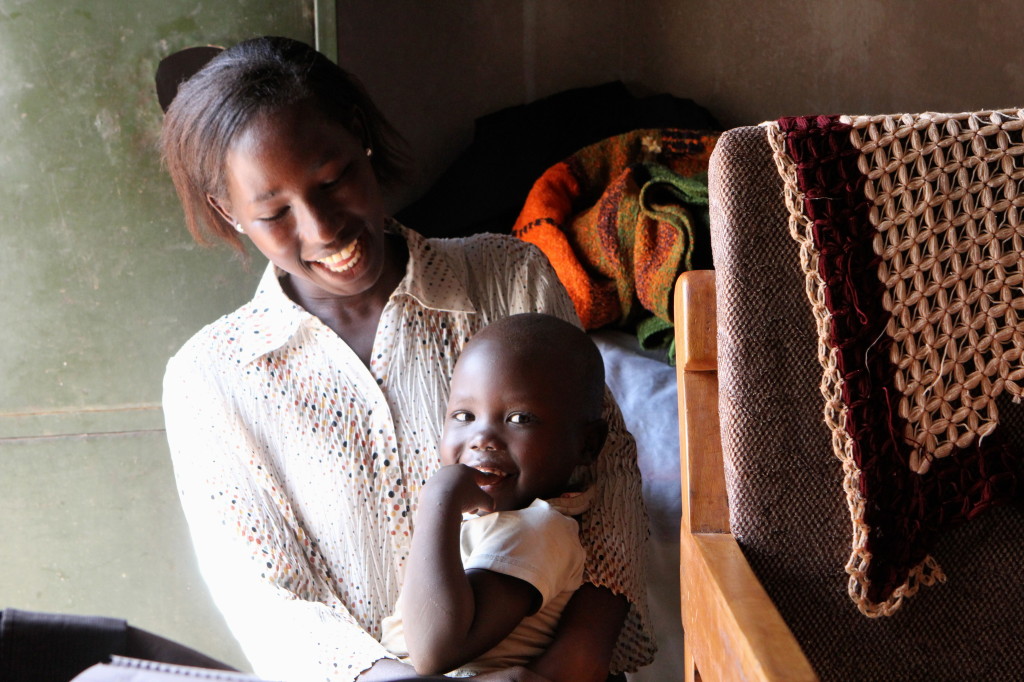
But we at Invisible Children do not see this as an end for Monica and the 21 other seamstresses.
When Monica joined Mend, she and other beneficiaries were experiencing extreme vulnerability in post-conflict northern Uganda. Improving quality of life for the women—many of who are former LRA abductees—became the mission of Mend, where beneficiaries have learned to save and invest their earnings, manage symptoms of trauma, and expand their tailoring skill set.
Due to the hard work of the seamstresses, as well the resources invested in their livelihoods by Invisible Children over the past five years, we believe that the program has accomplished just that.
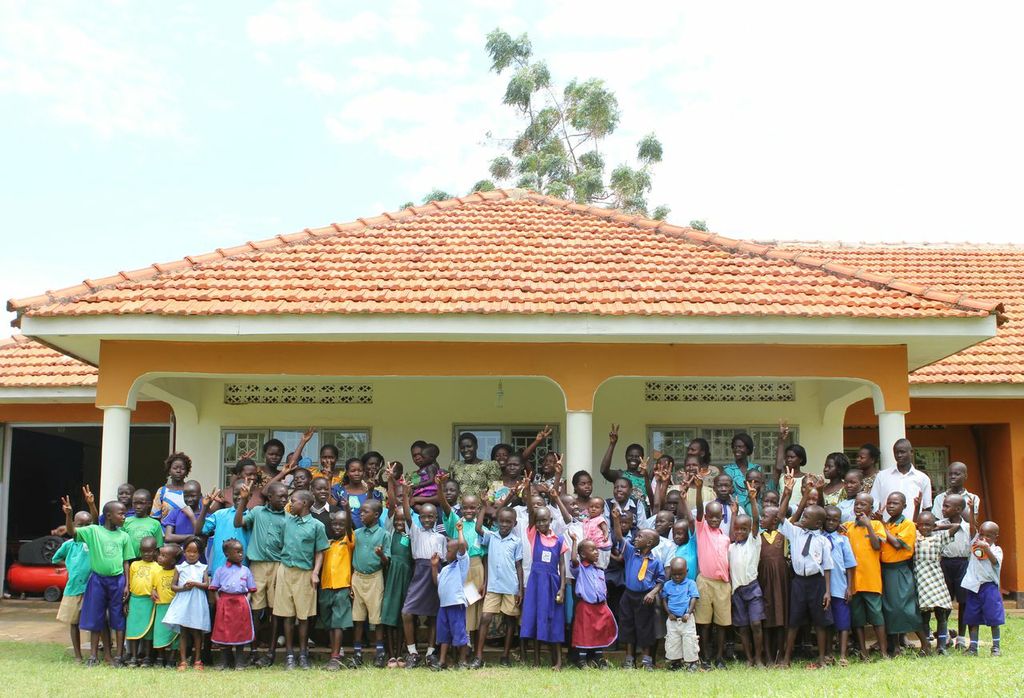
The Mend ladies and their children at the workshop in Gulu, Uganda.
For example:
– When the seamstresses joined Mend, only 18% reported living in a semi-permanent or permanent home, with the rest living in grass-thatched huts. Now, nearly 40% of the women live in semi-permanent or permanent homes, some of which they have built with the money made during their time with Mend.
– At the time of joining Mend, 88% of the seamstresses with school-aged children had their children in school. As of 2013, the women reported that 100% of their school-aged children were attending school.
– 37.5% of the women were saving and investing money through microfinance, VSLA or a bank when they joined Mend. Now 100% of the women have access to these formalized lending institutions.
As many of these statistics are from 2012, we’re excited to share just how much more the women have accomplished once the most current surveys are analyzed.
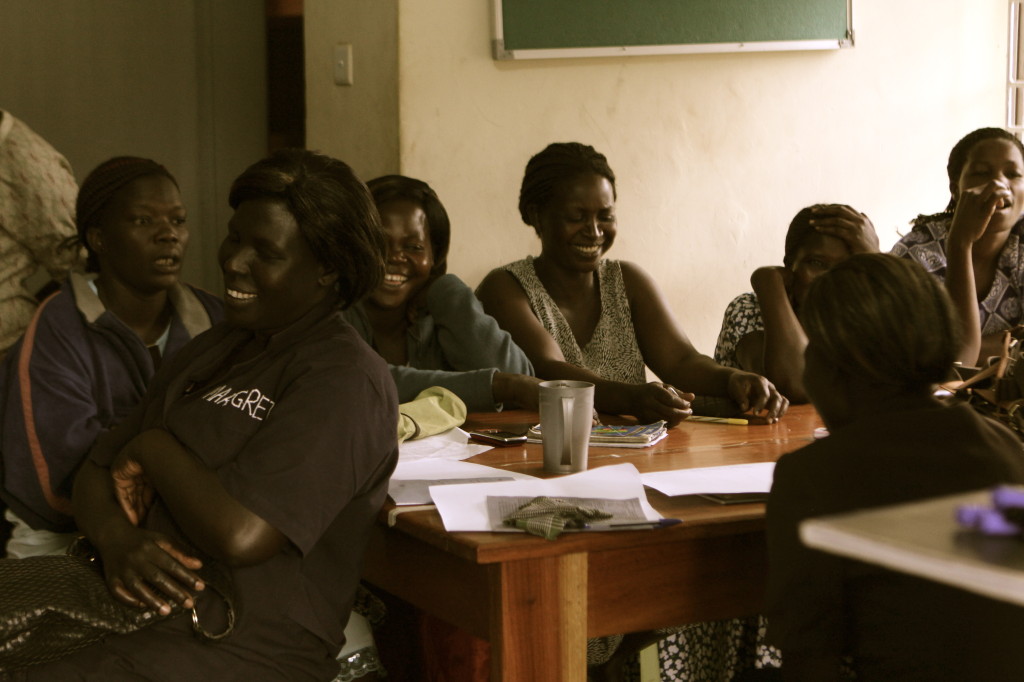
Functional Adult Literacy (FAL) training has greatly enhanced the seamstresses’ ability to read and write in their local language, Luo.
What’s more, each woman has set up her own income generating activity (IGA.) The ladies have proven that they are empowered by the business skills they gained through Mend to begin supporting themselves and ensure sustainable income for years to come. In addition to running small businesses, even more of the women have made large investments, purchasing things like livestock and land that can support their families into the future.
For example, Monica built a four-room house with her earnings from Mend. She also owns livestock—currently four goats and over 20 chickens—that she rears and sells for a profit. This provides for the day-to-day needs of her family, pays school fees for her school-aged children, and supports extended family members.
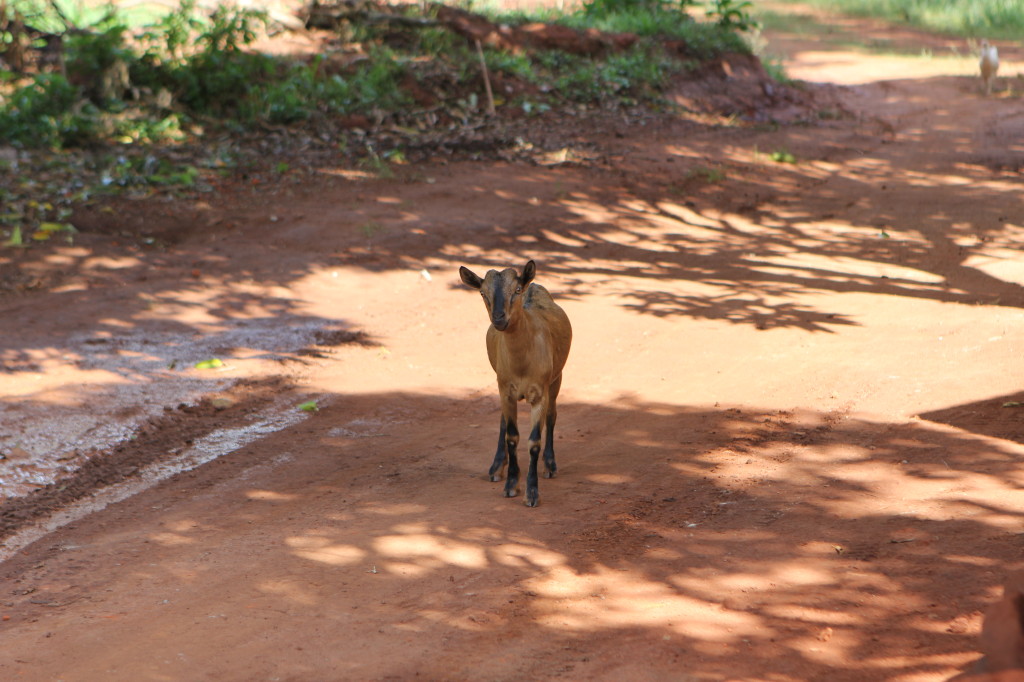
One of Monica’s goats.
The key principle of international development is to empower individuals to sustain their own livelihoods, and we feel that the program has supported our beneficiaries through myriad barriers and equipped them to be successful entrepreneurs who can support themselves and their families utilizing skills and training learned at Mend.
In addition to being empowered to start IGAs, the ladies of Mend have received substantial psychosocial support over the years that helps them to deal better with the impact of war. Many have reflected that they have learned how to be better mothers, improve domestic relationships and create more meaningful friendships.
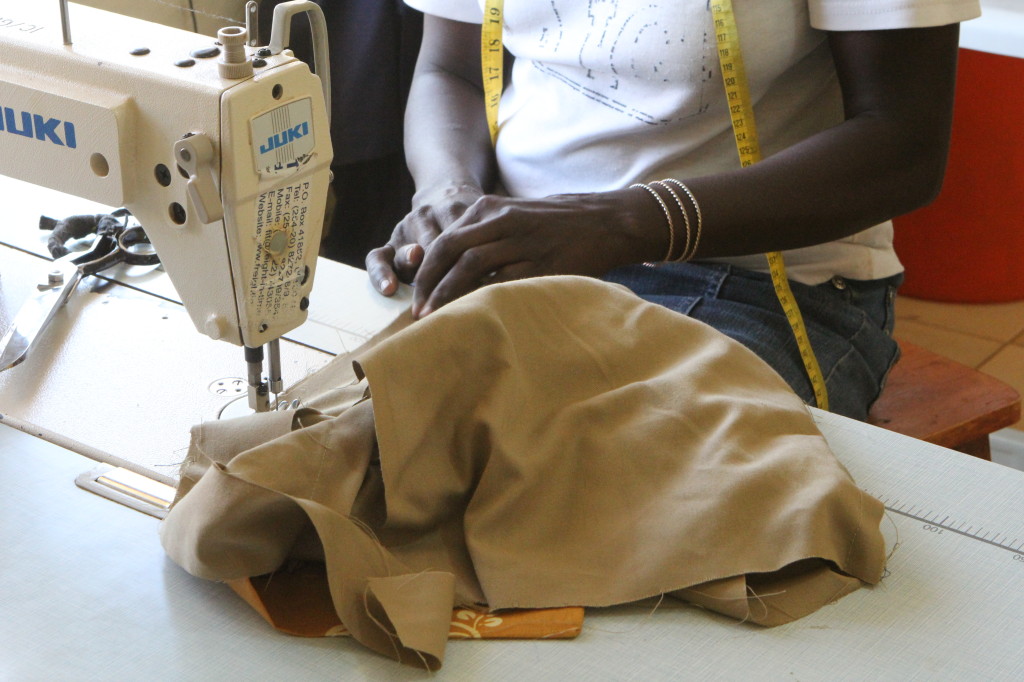
Monica has come a long way. During years of rebel activity in northern Uganda, she couldn’t complete her education. She can now put her children through school. She was once weighed down by the cycle of poverty, but now she has plans to maintain an independent and sustainable livelihood.
This was always our hope for the women of Mend—each one a living testament to the power of removing barriers and empowering potential.
For them, this is just the beginning.
Think people should hear about this?